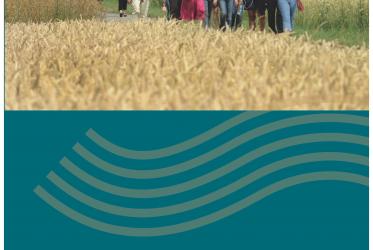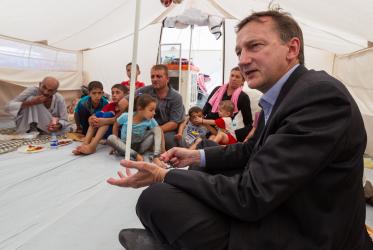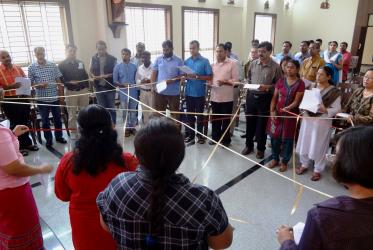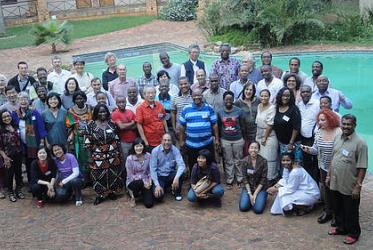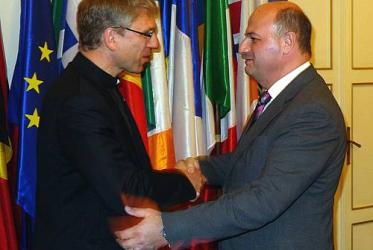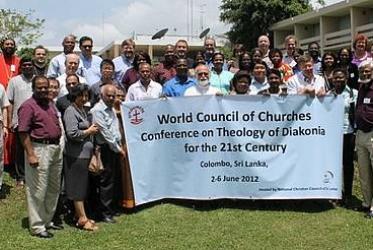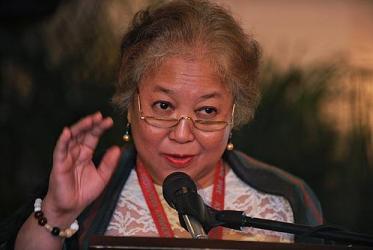Displaying 141 - 160 of 184
WCC Annual Review 2014
28 April 2015
Indian churches reflect on the WCC assembly theme
26 August 2013
Concern and solidarity for Bangladesh
17 May 2013
Situation in Greece more than an economic crisis
20 November 2012
European churches called to confront current financial crisis
21 September 2012
Altmann affirms signs of hope in the ecumenical movement
29 August 2012
WCC urges Colombia to protect human rights defenders
10 July 2012
Diakonia is transformative, says WCC moderator
04 June 2012
Churches on the way to Rio+20
30 April 2012
Churches on the move amidst changing landscapes
26 March 2012
